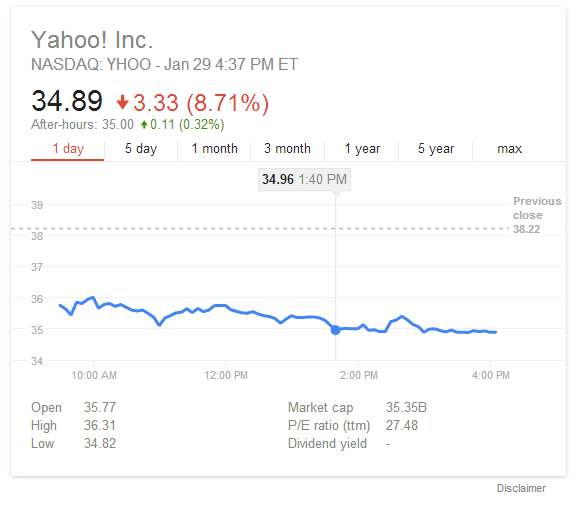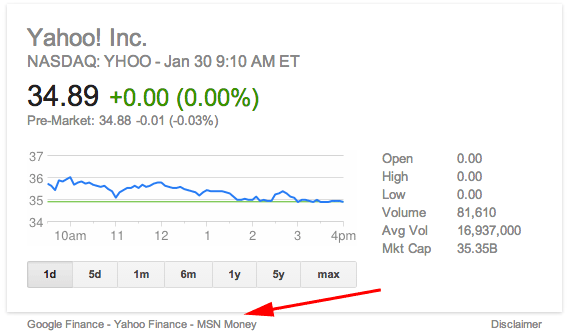Satya Nadella being named CEO of Microsoft isn’t just big news for Microsoft. It’s big news for search. For the first time in ages, the three major search companies in the US are all run by CEOs who either came out of a search-background or have a solid understanding of it.
Despite the attention search has gained over the years, I feel like it still gets overlooked as the powerhouse it is. It’s responsible for about half of online ad spending in the US. It’s where the majority of Google’s money comes from. As I joke, Google Glass and those self-driving cars are being funded by ads about mesothelioma and payday loans.
Search is a money-maker. It’s not as cool as social, where so much of the attention is these days, but it’s the dependable product that, done right, can lead to huge profits. Just ask Google. Having a “search CEO” who understands the importance of the product can potentially be a big win. Or, at least, perhaps part of a win. That’s because winning against Google is still so very tough.
Google’s Search CEO: Larry Page

You can’t get anyone with more “search CEO” cred that Google’s CEO Larry Page. He’s a CEO who literally built Google’s first search engine, along with cofounder Sergey Brin. And long before Google got into seemingly every other product under the sun (smoke detectors, anyone), Page was CEO and still closely tied to the search product. He gets search.
Of course, Page handed over the CEO reins to Eric Schmidt, then took them back again. Did it make a difference to Google’s conquest of search? Hard to say. Google pretty much had won, at that point. Its share of the search market in the US has stayed pretty solid after the change.
Google’s continued to churn out impressive search products, like conversational searchand Google Now. But the degree that Page is deeply involved with any of this, or responsible for it, is unclear to me. Personally, I’ve been under the impression search really isn’t that important to him, as attention is focused in other places.
By important, that is, something where he either shows a personal interest or gets personally involved. I could be wrong about all this, but it’s rare that I hear him talk about search much or see him at any of Google’s search-related events. He has a luxury here, in that Google has plenty of long-term, experienced execs who know search well. They’re “search natives,” so to speak, so maybe Page figures search is the safe area he doesn’t need to mess with.
Yahoo’s Search CEO: Marissa Mayer

Marissa Mayer oversaw Google search (the consumer-facing part of it, rather than the under-the-hood part) for about a decade, giving her plenty of search cred as the CEO of Yahoo. She knows search.
Unfortunately, Mayer inherited a company that largely gave up all of its search technology to Microsoft. And for all her knowledge of search, there’s no coming back from that.
Sure, Yahoo can try with the new search initiative that Recode wrote about last Friday. Sure, maybe there is an opportunity in mobile. But as I wrote in 2009, Yahoo was over when it cut that search deal with Microsoft:
And then there were two. Make no mistake, Yahoo’s out of the search game. I know the spin. Better user interface, new ways to innovate, a winning play. Let’s not kid ourselves. They’re done. Not today, not necessarily in a year, but down the line at some point. Done.
I’m coming up on having covered search for 18 years. In all that time, I have never seen a search engine recover from a sustained decline. I expect Mayer has no magic solution that will change that, despite all her search knowledge..
Rather, I expect she’ll do what I predicted when Mayer took over as Yahoo CEO. Try for a better deal with Microsoft or seek a new one with Google. Continue to talk search as being strong so as not to freak out investors even though ultimately, she’s “sunsetting” that product in hopes that other products will do better.
Microsoft’s Search CEO: Satya Nadella
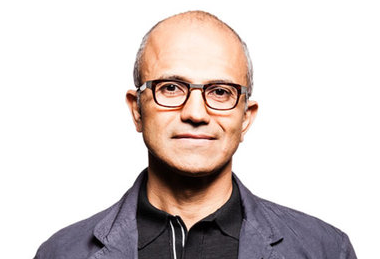
Anyone who’s a veteran of the search space already knows Satya Nadella’s name well. He’s the person who in 2007 inherited the mess that was Microsoft Windows Live MSN Search, the search engine with almost as many names as the Los Angeles Angels of Anaheim Orange County Southern California.
When Nadella took over, Microsoft had started down the path of building its own search technology but still hadn’t gotten anywhere.
By the time Nadella moved on elsewhere at Microsoft in 2011, Bing was moving up, both in share and respectability as a solid alternative to Google. It has continued that rise. Some knock it as being the number two to Google. I think having the number two search engine in the United States is an incredible achievement and one that ultimately may lead to profits.
Figuring whether Bing is profitable is tough because Microsoft doesn’t break it out as an independent operation. It’s also tough when Bing is being woven within all types of Microsoft products. But Nadella is someone who knows the power of search, and I’d expect that’s going to see Microsoft playing the long-game there, rather than dumping search as some thought potential CEO candidate Stephen Elop might do.
What Search CEOs Bring Beyond Search
So there you have it. Three companies all run by people who understand the power of search, the direct connection it makes with consumers, their demands and needs and how minutely that can be tracked (four if you want add in CBS Interactive chief Jim Lanzone).
Years ago, I spoke about how search marketers were unique not because of search because they were also “metrics marketers,” that they understood that marketing could be tracked, should be tracked and be proven to pay off.
I still believe this, that search marketing especially has given us a generation of marketers that’s rising up where it’s about CTR and ROI and things that can be proven rather than CPM and “lift” and potential audience.
Those metrics marketers are going to continue to look for places that allow them to get measurable results. And so, I feel that the “search CEO” may also be the “measurement CEO” who understands that need and ensures that they are delivering products for that rising generation of metrics marketers.
Postscript: As Google’s web spam chief Matt Cutts noted on Twitter, if you want to go beyond companies with popular search engines but which are lead by those with search experience, Tim Armstrong, the CEO of AOL, definitely belongs on that list. And while Sheryl Sandberg isn’t CEO of Facebook, as Facebook’s COO, she still has a deep knowledge of search from her days at Google.
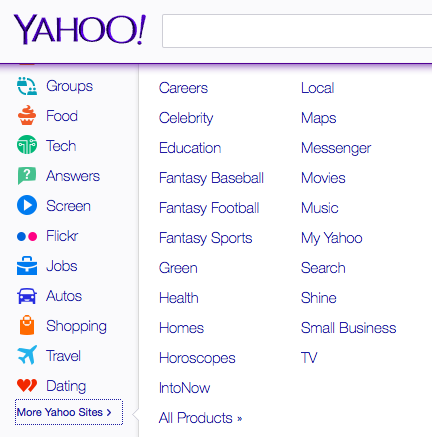

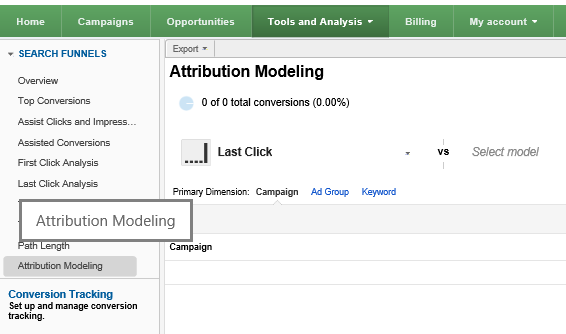
 Last click: Gives all credit for the conversion to the last-clicked keyword
Last click: Gives all credit for the conversion to the last-clicked keyword First click: Gives all credit for the conversion to the first-clicked keyword
First click: Gives all credit for the conversion to the first-clicked keyword Linear: Distributes the credit for the conversion equally across all clicks on the path
Linear: Distributes the credit for the conversion equally across all clicks on the path Time decay: Gives more credit to clicks that happened closer in time to the conversion
Time decay: Gives more credit to clicks that happened closer in time to the conversion Position-based: Gives 40% of credit to both the first- and last-clicked keyword, with the remaining 20% spread out across the other clicks on the path
Position-based: Gives 40% of credit to both the first- and last-clicked keyword, with the remaining 20% spread out across the other clicks on the path



